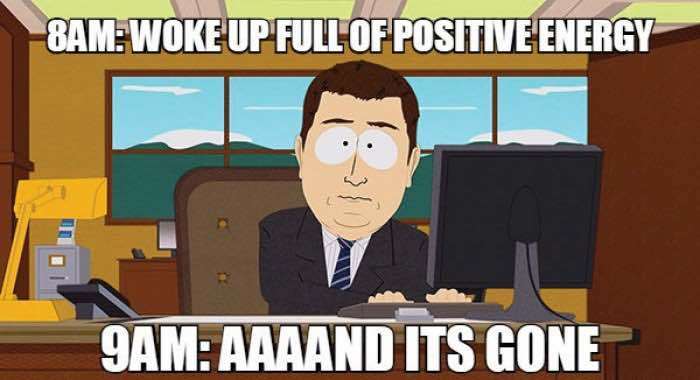Traps You Fall Into That Limit Your Happiness, by Dr. Travis Bradberry
Rich Hua stashed this in Happiness
Stashed in: LinkedIn, #happiness, Awesome, It's a trap!
Admit your feelings and embrace change.
Some habits lead to unhappiness more than others do. These traps are easily avoided once you're aware of them.
Holding your feelings in. One of the great misconceptions concerning emotional intelligence (EQ) is that it is about repressing our feelings and holding them in. While it is true there are feelings that high EQ individuals do not allow to erupt on impulse, that does not mean those feelings are not expressed. Emotional intelligence means honoring your feelings and allowing yourself to experience the catharsis that comes from embracing them for what they are. Only then can you express them in a manner that helps rather than hinders your ability to reach your goals.
Numbing yourself with technology. Everyone deserves the opportunity to binge-watch a TV show now and then or to switch on your Kindle and get lost in a book. The real question is how much time you spend plugged in (to video games, the TV, the tablet, the computer, the phone, etc.) and whether it makes you feel good or simply makes you numb. When your escape becomes a constant source of distraction, it is a sure sign you have fallen into the trap of too much of a good thing.
Spending too much time and effort acquiring “things.” People living in extreme poverty experience a significant increase in happiness when their financial circumstances improve, but it drops off quickly above $20,000 in annual income. There’s an ocean of research that shows that material things don’t make you happy. When you make a habit of chasing things, you are likely to become unhappy because, beyond the disappointment you experience once you get them, you discover that you’ve gained them at the expense of the real things that can make you happy, such as friends, family, and hobbies.
Waiting for the future. Telling yourself, “I’ll be happy when …” is one of the easiest unhappy habits to fall into. How you end the statement doesn’t really matter (it might be a promotion, more pay, or a new relationship) because it puts too much emphasis on circumstances, and improved circumstances don’t lead to happiness. Don’t spend your time waiting for something that’s proven to have no effect on your mood. Instead focus on being happy right now, in the present moment, because there’s no guarantee of the future.
Fighting change. Change is an inevitable part of life, and those who fight it do so because they are struggling to remain in control. The problem with this approach is that fighting change actually limits your control over the situation by putting up a barrier between yourself and the actions you need to take to improve your situation.
The idea here is to prepare for change. This is not a guessing game where you test your accuracy in anticipating what comes next, but rather it means thinking through the consequences of potential changes so that you are not caught off guard if they surface. The first step is to admit that even the most stable and trusted facets of your life are not completely under your control. People change, businesses go through ebbs and flows, and things simply do not stay the same for long. When you allow yourself to anticipate change—and understand your options if changes occur—you prevent yourself from getting bogged down by strong emotions like shock, surprise, fear, and disappointment when changes actually happen. While you are still likely to experience these negative emotions, your acceptance that change is an inevitable part of life enables y to focus and think rationally, which is critical to making the most out of an unlikely, unwanted, or otherwise unforeseen situation.











9:09 AM Oct 31 2016